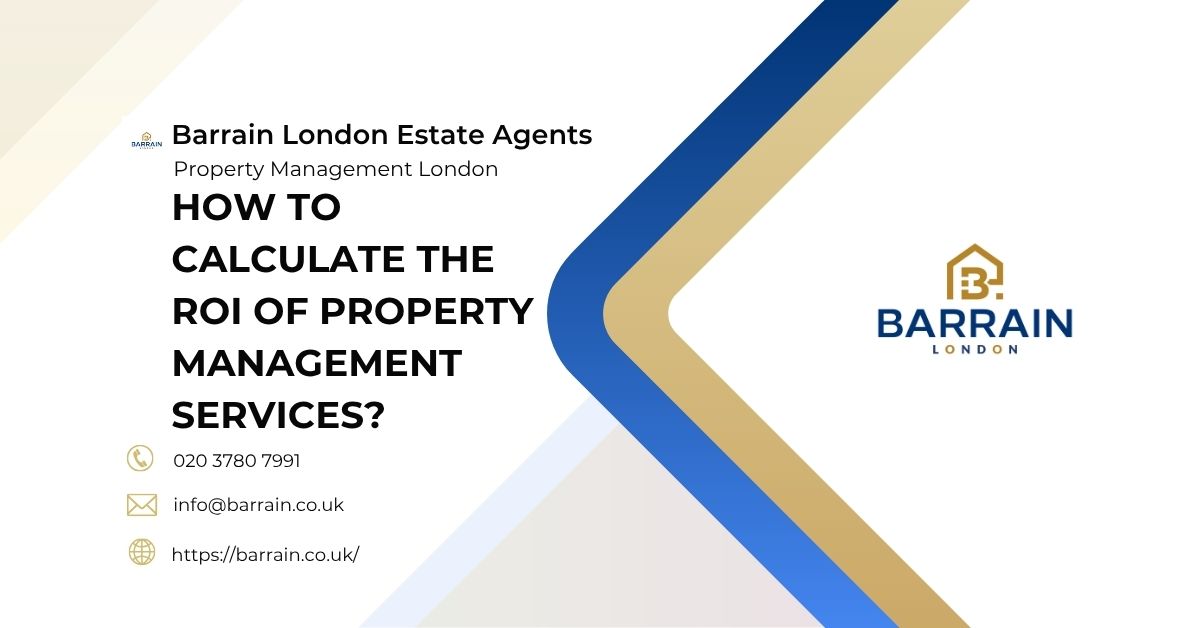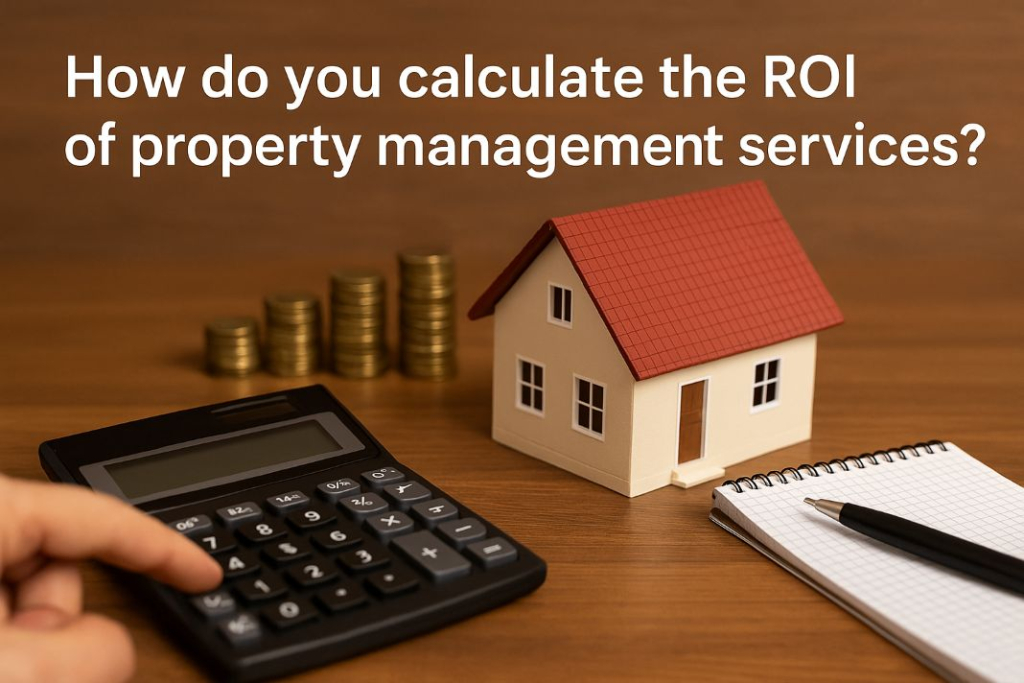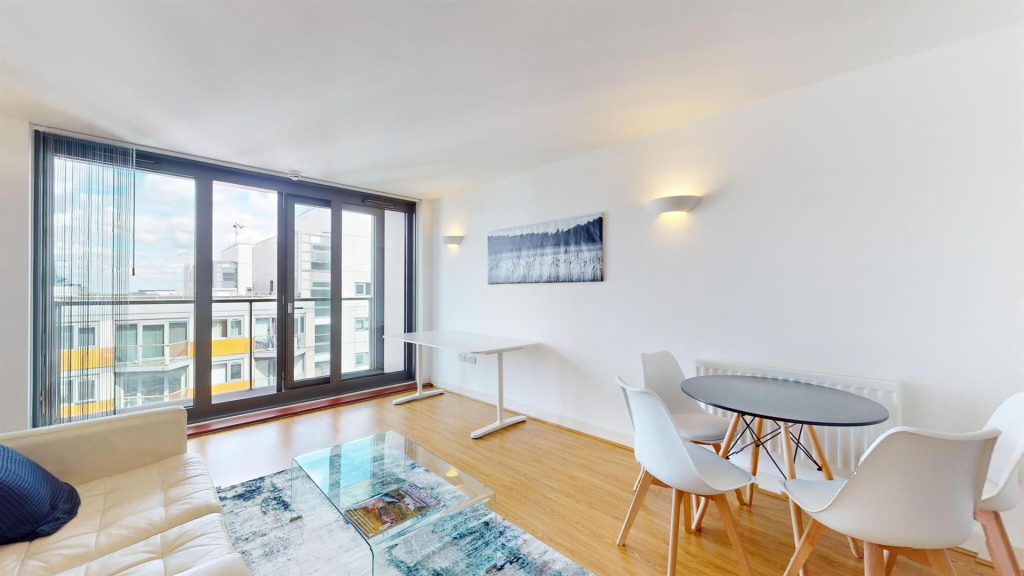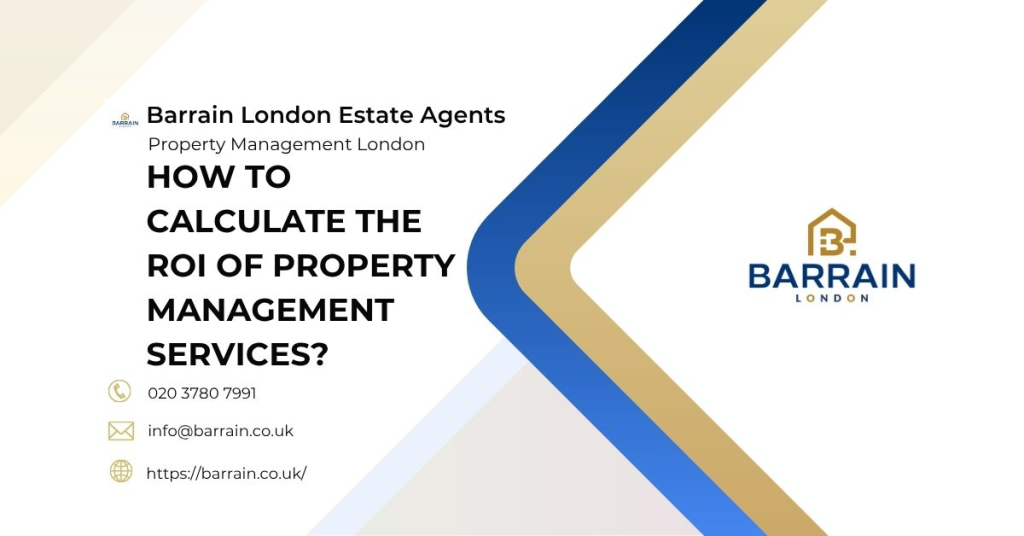How do you calculate the ROI of property management services?
To calculate return on investment for property management services, take your total rental income over twelve months and subtract all associated expenses. These include letting agent fees, building insurance, general maintenance, compliance costs, mortgage interest if applicable and any vacancy periods. Divide your net profit by your personal cash investment and then multiply the result by one hundred. This gives a percentage that reflects your return. It is a reliable way to understand if professional management is financially worthwhile.
What We Have Covered In This Article?
- How do you calculate the ROI of property management services?
- What does ROI really mean in rental property?
- How to calculate ROI on a buy to let property
- ROI if you have a mortgage
- What is a good ROI for a rental property in the UK?
- What affects ROI when using a letting agent?
- How to increase ROI on rental property?
- How Barrain Estate Agents support ROI for landlords
What does ROI really mean in rental property?
Return on investment measures how efficiently your money is working for you. In property, this shows how much profit you generate from your initial outlay. It is especially useful when using a property manager because it helps you determine if the service is contributing to or reducing your income. Rent collection alone is not enough to judge success. A meaningful ROI considers how well costs are controlled and income is maintained.
Pro Tip: Always factor in void periods when calculating ROI, even if your property has been fully let. This provides a more realistic view of your rental performance.
Ehab Barrain
Managing Director at Barrain Estate Agents London
How to calculate ROI on a buy to let property
ROI if you own the property outright
If your property is mortgage free, the calculation is direct and based entirely on your own cash investment.
Step 1: Annual rental income
Multiply the monthly rent by twelve. For example, rent of one thousand five hundred pounds gives eighteen thousand pounds a year.
Step 2: Total yearly expenses
These may include:
Letting agent fees
Insurance premiums
Repairs and service charges
Utilities and council tax where applicable
Allowance for vacant periods
Step 3: Net annual profit
Subtract all expenses from your yearly income.
Step 4: Total cash investment
Include property purchase price, Stamp Duty Land Tax, solicitor fees, refurbishments and furnishings.
Step 5: ROI formula
ROI = (Net Profit ÷ Total Cash Invested) × 100
Example:
Annual rental income: £18,000
Total expenses: £6,000
Net profit: £12,000
Initial investment: £120,000
ROI = (12,000 ÷ 120,000) × 100 = 10%
Ready to Let with Confidence?
Let our experts handle every aspect of your property from tenant sourcing to rent collection.
ROI if you have a mortgage
When a property is financed, your own cash input is smaller, but mortgage interest becomes part of your costs.
Step 1: Work out your net income
From your annual rental income, deduct all expenses including mortgage interest.
Step 2: Calculate your own contribution
Use only your deposit, legal costs and any upfront improvements.
Example:
Property value: £200,000
Mortgage: £150,000
Deposit and fees: £50,000
Annual rental income: £18,000
Expenses including mortgage interest: £11,000
Net profit: £7,000
ROI = (7,000 ÷ 50,000) × 100 = 14%
What is a good ROI for rental property in the UK?
What ROI should landlords aim for?
A return between five percent and twelve percent is generally considered healthy. Lower returns may suit landlords seeking long term capital growth. Higher ROI might appeal to those focused on short term cash flow. Property type, condition and location all influence expected figures.
Factors that influence return
Neighbourhood rental demand
Property layout and finish
Upfront refurbishment and furnishing costs
Voids and arrears
Tax structure and allowable deductions
For more guidance on selecting the right buy to let area, see our landlord investment insights.
Unsure About Your ROI?
Our team can evaluate your rental income and costs to help you see the real return on your property.
What affects ROI when using a letting agent?
Can a letting agent improve return on investment?
Good property managers help protect your income. They reduce the risk of voids, screen tenants thoroughly, manage repairs cost effectively and keep your property legally compliant. Each of these points helps avoid costly errors.
The impact of ongoing property care
Well maintained homes tend to stay occupied longer and attract higher quality tenants. Regular inspections and proactive maintenance reduce the risk of expensive emergency repairs later.
Vacancy periods and tenant turnover
Gaps in occupancy can reduce profits significantly. Letting agents often market properties faster, renew contracts earlier and build positive tenant relationships that lead to longer stays.
Mortgage terms
Your interest rate, fixed period and loan to value ratio affect monthly outgoings. These should be reviewed alongside your ROI to get the full picture.
Long term capital growth
If your property increases in value over time, it adds to your overall financial return. This may not appear in annual ROI figures but matters for future exit strategies.
How to increase ROI on rental property
Adjust your rental strategy
Pricing too low reduces income while going too high risks longer voids. Market comparisons help strike the right balance. An experienced letting agent will advise on suitable adjustments.
Upgrade selectively
Focus on improvements tenants value, like modern kitchens, extra insulation or fresh decor. Small upgrades often lead to higher rent and better tenant retention.
Maintain compliance
Up to date gas and electrical certificates, safe furniture and deposit registration avoid legal fines. These also build tenant trust and support smooth tenancies.
Claim tax deductions
Letting fees, accountant costs, repair bills and insurance are generally deductible. Keeping good records makes this easier.
Pro Tip: Compare ROI annually using the same calculation method. It helps track performance trends and quickly spot where income is being lost.
Ehab Barrain
Managing Director at Barrain Estate Agents London
How Barrain Estate Agents support ROI for landlords
At Barrain Estate Agents we know that good management adds real value. Our letting specialists handle tenant sourcing, contracts, maintenance, inspections and rent collection with care and clarity. We reduce voids, respond quickly to issues and keep our landlords informed. Whether you own a single property or a growing portfolio, we help you make better returns with less hassle.
Internal link: See how our property management services work in practice.
Questions we get asked about lettings and management rOI
How does ROI differ from yield? Yield is a simple ratio of rental income to property value. ROI includes your actual costs and gives a clearer view of profitability.
How often should I check my ROI? Once a year or when significant changes occur such as new tenants, major repairs or refinancing.
Are letting agent fees tax deductible? Yes, they are generally classed as allowable expenses.
Is ROI useful for comparing investments? Yes. ROI helps you weigh up different properties or decide between managing yourself or using an agent.
Why choose Barrain to manage your property? We make the process straightforward and financially sound. Our focus is on clear advice, timely action and keeping your property performing well.
Get More from Your Property
Discover how Barrain can improve your rental returns through better management.







